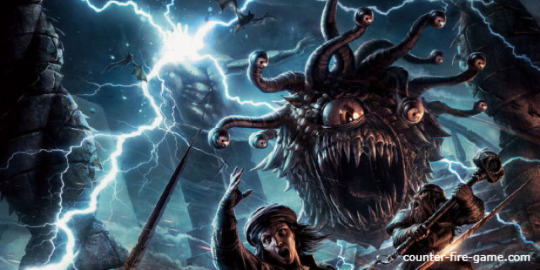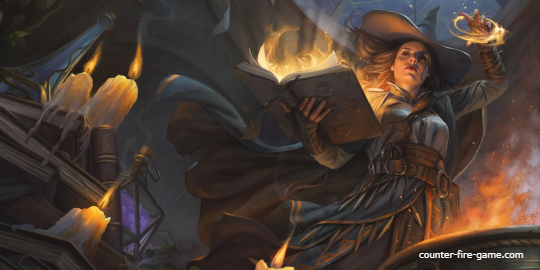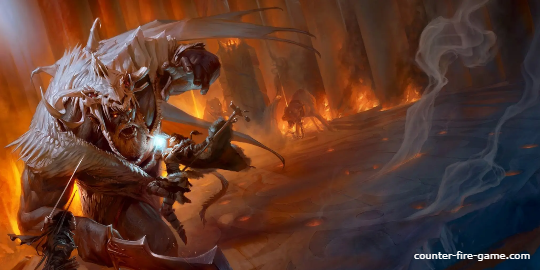
The intricate rules of Dungeons & Dragons (D&D) 5th Edition can be daunting for newcomers. Spellcasting classes, with their spell slots and a myriad of spell rules, are particularly complex. To ease rookies into the game, it is advisable for Dungeon Masters (DMs) to recommend simpler character classes like Fighters, which focus on combat, or Barbarians, which offer robust physical play without the complexities of spellcasting. Rogues can also be a good pick for new adventurers seeking stealth and dexterity. While DMs shouldn't push a class on a player, they can guide them towards options like the Warlock or Cleric if they express interest in casting spells in a more manageable way.
Layering Game Mechanics for Beginners
For DMs who are able to design their sessions carefully, slowly introducing game mechanics can be highly beneficial for new players. Starting with basic ability checks can familiarize the player with the core dice mechanics in a non-threatening manner. As comfort grows, the DM can then segue into simple combat scenarios to expand understanding of attack rolls and saving throws. Introducing mechanics one at a time allows novice players to build their confidence without being overwhelmed by the game's intricacies.
Tailoring Early Encounters to Encourage Learning
Early combat encounters in D&D 5e can range in difficulty, but for new players, it's vital to start on the easier side to prevent frustration. Some of the starter campaigns are known for their challenging battles with low-level characters, which can be disheartening for first-time participants. A more cautious approach allows new players to grasp the mechanics before they're thrown into high-stakes situations.

Teaching the Rules Rather Than Just the Results
DMs might be inclined to simplify the game's learning curve by handling the calculations for the players. However, guiding players through the math behind their character's actions can be more beneficial in the long run. Showing a player how to factor in their ability modifier and proficiency bonus, for instance, can demystify the game. Similarly, explaining how Armor Class, attack bonuses, and spell saving throw DC are derived helps the player make sense of the game's logic.
Familiar Themes for New Adventurers
Starting with familiar storytelling tropes can help ease players into the game. Newcomers need not be burdened with the deeper lore and complex faction relationships right away. DMs can draw from common fantasy themes—such as battling goblins and thwarting bandits—to provide comfortable entry points into the game. Tailoring the story to align with a player's interests and background knowledge can also help make their initial forays into D&D more engaging and less intimidating.
Navigating the First Steps of a D&D Journey
When guiding a new player through D&D, it's crucial to maintain a supportive environment that nurtures their growing understanding of the game. By starting with simple classes, gradually introducing game mechanics, adjusting combat difficulty, explaining the underlying rules, and leveraging familiar story elements, DMs can craft an enjoyable and educational experience that sets the stage for many adventures to come.

Exercising Patience and Reiterating Game Mechanics for D&D Newcomers
When Dungeon Masters introduce newbies to the complexities of D&D 5th Edition, they should expect to encounter moments where repetition is necessary. Patience becomes a DM's best tool as they patiently guide the new player, re-explaining mechanics as needed. A DM's reassurance and proactive guidance, even before questions arise, can be a welcome support, and new players often appreciate the additional help as they navigate the intricacies of their D&D journey.
Accommodating Creative Play for New Adventurers
D&D stands out for its limitless potential for player choices. Beginners, with their fresh perspective, may propose innovative solutions that don't strictly adhere to the written rules. DMs should embrace this enthusiasm and allow such creativity, perhaps prefacing that while a particular action might not usually succeed, they admire the initiative and creativity behind the suggestion.
Creating Moments for Characters to Shine
DMs can help newcomers understand their characters' capabilities by setting up scenarios that highlight their unique skills. A character adept in magic may find themselves facing a challenge that requires their fiery spells, or a rogue might encounter locks begging to be picked. By carefully creating these moments, DMs give new players a clear opportunity to shine and contribute meaningfully to the adventure.

Balancing Consequences Without Encouraging Negative Behavior
DMs also play the role of upholding a game's social contract, ensuring that new players understand the repercussions of their actions in-game. While creativity is encouraged, there should still be reasonable consequences that preserve the integrity of the narrative and gameplay. This approach helps cultivate a responsible gaming etiquette and deters behavior that could detract from the group's collective experience.
Encouraging Roleplaying Without Overwhelming New Players
Roleplaying is another aspect of D&D that might be foreign to newcomers. DMs should nudge new players into this creative expression by gently presenting in-character interactions. However, it's crucial not to push too hard, as this can lead to discomfort. Instead, by providing opportunities and then honoring the players' comfort levels, DMs can help them gradually find their voice and style within the roleplaying aspects of the game.
Embracing Supportive Storytelling and Player Growth in D&D
In conclusion, a Dungeon Master's role extends well beyond controlling the narrative and adversaries within the game. They also serve as mentors and guides, particularly for those who are just beginning their quest into the realms of D&D 5th Edition. By exercising patience, encouraging creative solutions, crafting character-centric challenges, maintaining the game's integrity, and inviting players into the roleplaying experience with understanding, DMs create a welcoming and enriching environment. The ultimate goal is to facilitate a space where new players can grow, learn, and eventually thrive, weaving their unique stories into the rich tapestry of the D&D universe.


